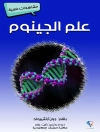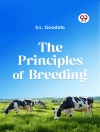In ‘The Perpetuation of Living Beings, Hereditary Transmission and Variation, ‘ Thomas Henry Huxley delves into the intricate mechanisms of heredity and evolutionary biology, employing a clear and accessible prose style that invites both the layperson and the scholar to ponder the intricacies of life’s continuity. The book is a significant contribution to the 19th-century discourse on Darwinism, providing compelling arguments that elucidate how variations arise in species and how these nuances are crucial for the perpetuation of life. Huxley meticulously examines scientific evidence, challenging contemporary misconceptions and positioning the work as a foundational text in the study of genetics and evolutionary theory. Huxley, often hailed as ‘Darwin’s Bulldog’ for his staunch defense of Charles Darwin’s theories, was a prominent biologist and paleontologist whose own experiences in the scientific community and personal aspirations fueled his desire to elucidate the laws governing inheritance and species variation. His extensive background in comparative anatomy and his advocacy for science education helped shape his convictions, making him an authoritative voice in the evolution debate of his time. This book is indispensable for anyone intrigued by the origins of biological diversity and the principles of heredity. Huxley’s incisive arguments and scientific rigor make it a must-read for students of biology, educators, and general readers alike who seek a deeper understanding of evolution’s mechanisms.
Giới thiệu về tác giả
Thomas Henry Huxley (1825–1895) was an eminent English biologist, known as ‘Darwin’s Bulldog’ for his fierce defense of Charles Darwin’s theory of evolution. Huxley’s contributions to science extend well beyond advocacy; his rigorous approach helped to establish biology as a distinct scientific discipline. His own research spanned multiple biological fields, and he was instrumental in developing scientific education in Britain. Highly respected for his ability to communicate complex ideas to the public, Huxley wrote extensively on science and philosophy. Among his works, ‘The Perpetuation of Living Beings, Hereditary Transmission and Variation’ evidences his deep understanding of evolutionary biology and his skill in synthesizing knowledge. A master of clear and concise expression, he presented a realistic view of the mechanisms of inheritance and the role of variation in natural selection. His literary style is characterized by clarity, a scientific rigor that did not exclude accessibility, and a strong philosophical underpinning that reflected on the societal implications of scientific advancements. Huxley’s legacy as a writer, educator, and thinker endures, and his works remain seminal reading for students of biology and the philosophy of science.












